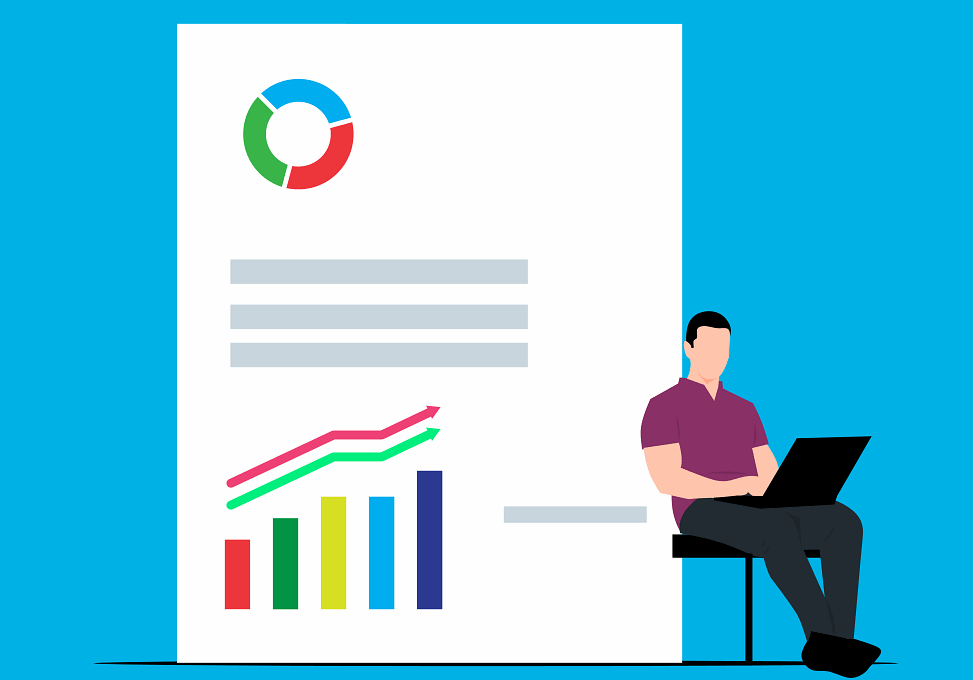Leveraging Data Analytics in Financial Sector HR Community Building
In the rapidly evolving landscape of the financial sector, fostering a robust Human Resources (HR) community remains crucial. Leveraging data analytics is essential in this initiative, enabling organizations to identify strategic insights that pave the way for comprehensive community building. By utilizing data-driven approaches, HR professionals can analyze workforce trends, employee performance metrics, and engagement levels, thus shaping more effective community structures. Establishing a data-centric culture fosters collaboration among members, creating a transparent environment conducive to sharing best practices. Data analytics can provide insights on recruitment trends, enhancing the selection process to ensure the best talent is brought into the organization. Furthermore, understanding demographics helps tailor programs that meet the specific needs of diverse communities within the workforce. Initiatives like mentorship programs, diversity training, and employee wellness programs can be strategically designed based on data analytics findings. Investing in these areas generates higher engagement rates and ultimately improves organizational performance. HR professionals in finance sectors should prioritize data analytics integration into community-building efforts for fostering unity, inclusivity, and efficiency across all levels of the organization.
Building efficient HR communities also involves leveraging technology to gather and analyze relevant data. This transition is supported by various tools and software which simplify the data collection process. For instance, HR management systems can help track employee performance over time, providing actionable insights for community-building initiatives. Data visualization tools further enhance understanding, allowing HR leaders to present findings to stakeholders effectively. Training employees on the importance of data analytics also enhances community engagement as it empowers team members to make informed decisions based on solid information. With the integration of AI and machine learning, the analysis can predict future trends, ensuring the HR community remains agile and responsive to changing dynamics. Organizations are encouraged to foster a culture that embraces continual learning surrounding data literacy. Workshops and training sessions focusing on data interpretation can significantly uplift knowledge within the HR teams. Participation in professional conferences and webinars can boost employees’ confidence in utilizing analytics effectively. This momentum builds a community that not only relies on data but also thrives on it, ensuring a forward-thinking HR environment in the financial sector.
The Role of Collaboration in Data Analytics
Collaboration plays a vital role when cultures of data analytics are implemented within HR communities. When teams share insights and findings, it nourishes a sense of belonging and encourages innovation. For instance, bringing different departments together to discuss performance metrics can lead to a wealth of ideas and perspectives. This collaboration ensures that data-driven decisions made are comprehensive and consider various aspects of the organization. Furthermore, platforms that offer collaborative tools can facilitate better decision-making processes. Tools such as shared dashboards or analytics frameworks allow HR teams to work cohesively toward common objectives. Regular collaboration meetings should be held to dissect analytical reports and formulate strategies. These sessions not only clarify interpretations of data but encourage team members to contribute actively. Additionally, collaborative approaches help in identifying potential challenges earlier, allowing proactive measures to be taken swiftly. By creating opportunities for interdepartmental engagement through data, HR communities can effectively foster unity and shared purpose. Ultimately, such collaborative practices cultivate a collective understanding necessary for thriving in the competitive landscape of the financial sector.
Another significant aspect of leveraging data analytics in community building is continuous feedback collection. Feedback mechanisms enable HR leaders to gauge employee sentiment and satisfaction effectively. Regular pulse surveys, performance appraisals, and suggestion boxes are critical in obtaining valuable data points, which should reflect community sentiments over time. As feedback gets analyzed, it highlights areas of growth and success within the HR community. This approach not just strengthens community ties but strengthens employee voice and engagement. Utilizing data from these feedback tools can drive improvements in existing programs and offer insights into where changes are necessary. HR teams must adopt an agile mindset, remaining open and responsive to findings. The willingness to change based on data reflects an organization that values its community members. Moreover, acknowledging feedback emphasizes a culture of transparency, where employees feel valued and heard. Initiatives designed through feedback invite collaboration which enhances trust among team members. The balance between evaluating data and applying it effectively will result in thriving HR communities capable of adapting to the dynamic needs of the financial sector.
Creating a Data-Driven Culture
Building a robust data-driven culture within HR communities in the financial sector is a fundamental goal. It encourages every employee to view data analytics as a core part of their roles and responsibilities. This approach shifts the traditional perspective of HR as merely administrative to a strategic partner in organizational success. Workshops that instill behavioral change and promote data literacy are essential in developing this culture. Employees should learn how to leverage analytics tools and interpret data meaningfully to drive decision-making. An HR community that profoundly understands data fosters a stronger connection to the organization. The relationships built on knowledge-sharing and continuous learning create employee advocates for the analytics vision. Data champions within teams can help influence their peers, turning the entire organization into a data-centric environment. Chief HR officers must lead by example, utilizing analytics in their own decision-making processes. As a result, this integration promotes an organization-wide alignment toward analytics objectives, equally enhancing engagement and collaboration. Fostering this culture ensures that the HR community stays competitive, enabling the organization to respond promptly to the evolving demands of the financial landscape.
Additionally, benchmarking against industry standards serves as a strategic way to leverage data analytics within HR community building. By comparing performance metrics against leading competitors, organizations can identify areas of improvement and best practices to adopt. This practice helps HR teams set realistic and challenging goals. Data helps not only to define these benchmarks but also to ensure consistent progress towards reaching them. Moreover, organizations can learn from industry success stories, adapting proven strategies to meet their unique community requirements. Regular benchmarking exercises should be accompanied by thorough analysis of both results and strategies implemented by competitors. This ongoing assessment allows financial sector HR professionals to refine their approaches continually. Subscribing to industry reports and analytics tools provides additional insights beneficial for this benchmarking process. Sharing these findings within the HR community encourages a unified goal-setting approach based on evidence. The collaborative nature of benchmarking practices cultivates a sense of ownership within the community. As community members thrive toward achieving set benchmarks, it leads to elevated performance and more significant collective outcomes in alignment with industry standards.
The Future of HR Communities through Data Analytics
Looking toward the future, data analytics is set to transform how HR communities operate within the financial sector. The integration of predictive analytics will offer opportunities to foresee upcoming trends and transformations within workforce dynamics. By anticipating changes, HR teams can develop proactive models to engage employees effectively and meet their evolving needs. Additionally, data analytics will enhance team-building strategies by offering insights into employee relationships and collaboration efficiencies. The implementation of such analytics allows HR professionals to tailor community-building initiatives that resonate strongly with employees. As technology advances, AI and machine learning will continue to augment data collection and analytical capabilities. Human Resources must stay attuned to these trends, embracing them as they shape the future. Preparing for advanced data usage creates a forward-thinking HR community that thrives on innovation, sustaining competitive advantages. Digital platforms facilitating community networking will also expand, providing members opportunities to connect, collaborate, and share insights. By valuing data-driven strategies, HR can redefine its role, not just as a support function but as a driver of organizational change in the financial sector.
In conclusion, data analytics has immense potential in shaping HR community building within the financial sector. By nurturing a data-centric culture, organizations can enhance their HR practices and foster closer employee relationships. Emphasizing collaboration and open discourse will further improve relationships in HR communities. Engaging employees through feedback mechanisms ensures that the community reflects its members’ voices. As HR professionals embrace predictive analytics and benchmarking, they strengthen their communities and drive impactful change. Tapping into technology advancements will empower HR teams to stay ahead of industry currents, adapting accordingly to future workforce needs effectively. The financial sector must prioritize innovative strategies to excel in community building through data-driven insights. This path not only emphasizes the importance of data analytics but positions HR teams as pivotal players within their organizations. By doing so, financial institutions can create resilient HR communities that support business goals and contribute to sustainable organizational growth. The emphasis on data will ultimately guide HR professionals toward best practices, fostering a robust and dynamic human resource landscape in the ever-evolving financial industry.





